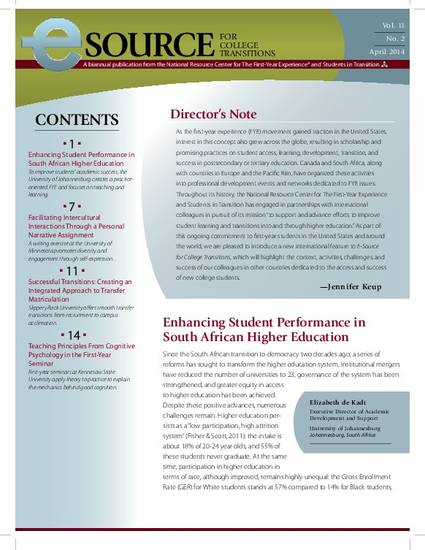
Article
Teaching principles from cognitive psychology in the first-year seminar
E-Source for College Transitions
(2014)
Abstract
Research has long established that the most successful college students develop useful study strategies, healthy approaches to learning, and enough self-efficacy to facilitate the difficult transition to college-level work (Bean & Eaton, 2000; Chemers, Hu, & Garcia, 2001; McCormick, Dimmitt, & Sullivan, 2012). Many first-year seminars, therefore, include sections on learning and motivation strategies (Hunter & Linder, 2005), and the impor- tance of teaching them has been discussed at length (e.g., Tuckman, 2003). Less com- mon, however, is the inclusion of instruction in the science behind these strategies and motivation. Many first-year instructors give students the tools but fail to explain, from a cognitive perspective, why they work. Because these strategies take considerable mental effort, students may not be convinced that the work is worth the outcome. Explaining the mechanics behind good cognition in ways that students understand helps to “sell” active-learning strategies to skeptical students, who can then transfer this knowledge to other courses. Instructors can employ many ways to incorporate lessons from cognitive psychology into a first-year curriculum (Steiner, 2012) with useful, interesting classroom exercises that focus on memory, metacognition, attribution theory, and self-efficacy.
Disciplines
Publication Date
2014
Citation Information
Hillary H Steiner. "Teaching principles from cognitive psychology in the first-year seminar" E-Source for College Transitions Vol. 11 Iss. 2 (2014) p. 14 - 16 Available at: http://works.bepress.com/hillary-steiner/5/
